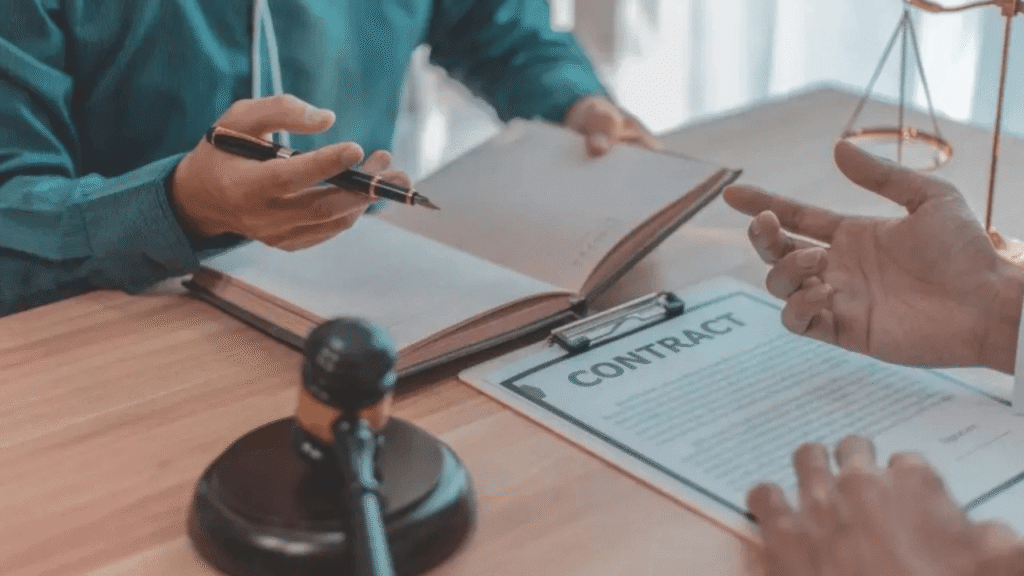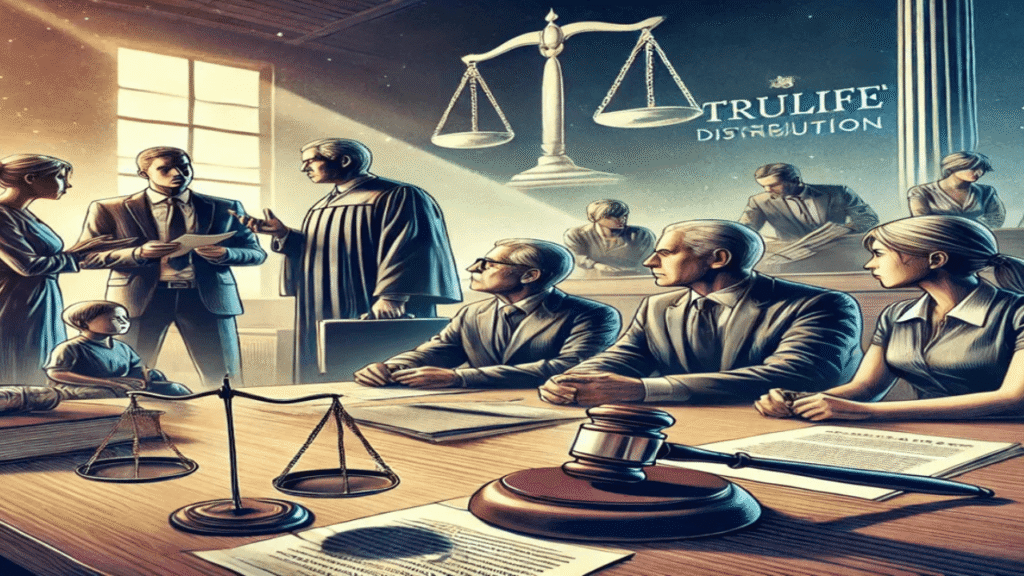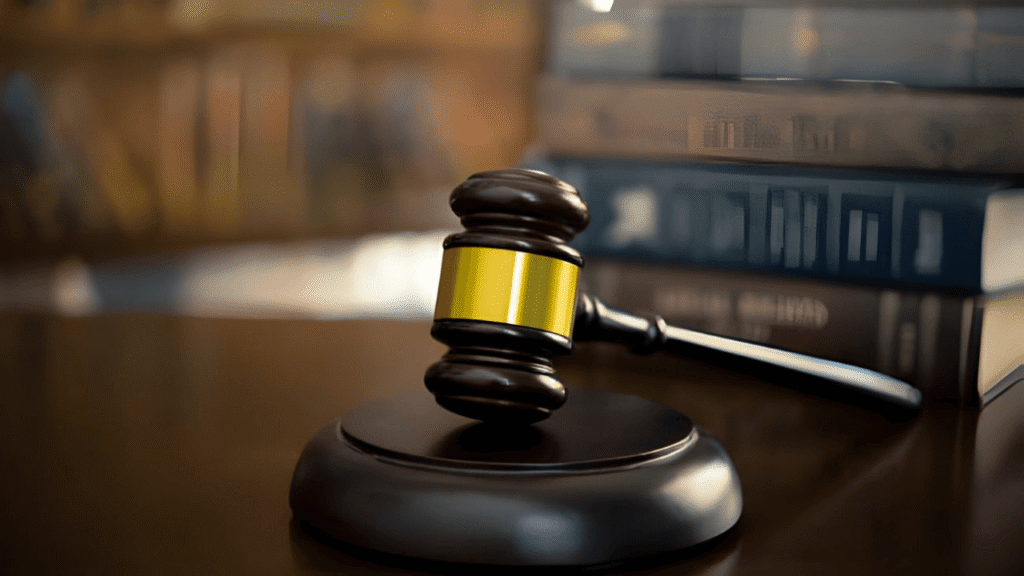
The TruLife Distribution lawsuit has become a focal point in the health and wellness industry, raising questions about transparency, business ethics, and corporate accountability. With multiple allegations from former partners and clients, this case highlights the risks companies face when entering unfamiliar distribution partnerships.
In this article, we break down the case in detail: who’s involved, what’s at stake, and how it’s impacting the wellness sector. We also share lessons for brands seeking reliable U.S. market entry solutions.
Background of TruLife Distribution
Founded by Brian Gould, TruLife Distribution is a U.S.-based distributor of international wellness and supplement brands. The company offers services like logistics, U.S. retailer access, PR, and brand building. TruLife promotes itself as a one-stop solution for international brands to enter the American market.
What Triggered the TruLife Lawsuit?
The lawsuit began in late 2022, when a group of former clients and business partners filed civil complaints against TruLife and Brian Gould. These clients alleged that TruLife failed to meet contractual promises, misled them about business opportunities, and engaged in unethical conduct.
Some of the plaintiffs reportedly invested tens of thousands of dollars for distribution and marketing services, only to receive little to no return on investment.
Detailed Allegations Against TruLife
1. Misleading Business Capabilities
TruLife allegedly exaggerated its relationships with top U.S. retailers, including chains like CVS, Walmart, and Whole Foods. Plaintiffs claim they were promised retail placement that never materialized.
2. Breach of Exclusive Contracts
Several clients allege that TruLife violated exclusivity clauses, either by signing competing brands in the same niche or failing to uphold agreed territories.
3. Financial Mismanagement
There are reports of:
- Upfront fees paid for services that were not delivered.
- Lack of clarity on how funds were used.
- Inflated charges for marketing and PR activities with minimal documentation.
4. Reputation Misuse and Fraud
Some plaintiffs allege TruLife used false endorsements and outdated retail partnerships to attract new clients. One brand even reported being used in unauthorized promotional materials, implying a partnership that didn’t exist.
Response from TruLife Distribution

Official Denials
TruLife has strongly denied all allegations, labeling them as false and damaging to the company’s reputation. Brian Gould has issued statements asserting that TruLife acted within all legal and contractual bounds.
Counter-Lawsuits and Legal Motions
TruLife filed counterclaims, accusing plaintiffs of:
- Failing to deliver promised marketing support
- Breaching their own contracts
- Attempting to defame the company for financial leverage
The company has also requested that some charges be dismissed for lack of merit.
Legal Timeline of the TruLife Lawsuit

2022
- Multiple plaintiffs file a lawsuit in Florida state court.
- Claims include fraud, misrepresentation, breach of contract, and negligence.
2023
- Discovery phase begins.
- Depositions collected from both parties.
- Emails, payment records, and contract terms entered as evidence.
- Settlement talks held but ultimately fall through.
2024
- Court orders mediation, which results in no resolution.
- The court schedules a formal trial, pending additional documentation.
Current Status of the Lawsuit (2025)
As of June 2025, the TruLife Distribution lawsuit is still under active litigation. Key updates include:
- A pre-trial hearing occurred in May 2025, with the judge allowing the case to move forward.
- Several motions to dismiss were partially denied, meaning the court sees enough merit in several claims to proceed.
- The court ordered binding arbitration for certain contract disputes, but fraud allegations will be heard in civil court.
- No formal trial date has been set yet, but it’s expected in late 2025 or early 2026.
- At least two new plaintiffs have joined the case, expanding its scope.
Business and Industry Fallout
Reputation Damage
Whether or not TruLife is found guilty, the case has already harmed its market perception. Several brands have reportedly canceled pending deals, and the company’s social media presence has gone quiet.
Increased Due Diligence in the Industry
Distributors are now under greater scrutiny. International brands are:
- Seeking third-party reviews before signing with new U.S. partners
- Requesting performance-based contracts
- Consulting industry watchdogs before investing
Social Media & Public Sentiment
On platforms like LinkedIn, Reddit, and Twitter, professionals in the wellness industry have weighed in. Key themes include:
- “This isn’t the first time a distributor overpromised.”
- “Due diligence is critical when investing in U.S. market expansion.”
- “Brands should demand clear documentation of deliverables.”
Some ex-employees of TruLife (unverified) have commented anonymously, claiming the company had a “sales-first, delivery-later” culture.
Expert Legal and Industry Analysis

Legal Experts
Attorneys suggest that misrepresentation and breach of contract cases are hard to prove unless:
- There’s written proof of guarantees (e.g., retail placement)
- Clients can prove they acted based on false claims
Brand Strategy Consultants
Consultants recommend:
- Always verifying distributor retail relationships
- Getting progress reports in writing
- Avoiding large upfront payments without milestones
Lessons for Global Health Brands
1. Always Vet Your Partners Thoroughly
Request client references, confirm retailer claims, and verify prior success stories.
2. Use Clear, Specific Contracts
Include KPIs, milestones, refund clauses, and dispute resolution terms.
3. Ask for Transparency
Insist on access to:
- Retailer pitch decks
- Progress reports
- Proof of PR and digital work
4. Monitor Results Actively
Hold regular check-ins and terminate deals that show early red flags.
Conclusion
The TruLife Distribution lawsuit is more than just a legal dispute—it’s a wake-up call for health brands seeking to expand in the U.S. market. While the case is still ongoing, it’s already reshaping how brands choose their partners, how they protect themselves, and how the distribution sector is regulated.
As 2025 unfolds, the outcome of this case could set a precedent for legal accountability in the supplement and wellness space.
If you’re a brand looking to enter the U.S. market, let this be a lesson: due diligence, strong legal agreements, and accountability mechanisms are not optional—they’re essential.
Frequently Asked Questions (FAQs)
Q1: What is the TruLife Distribution lawsuit about?
The lawsuit involves allegations of fraud, breach of contract, and misrepresentation in distribution and marketing services.
Q2: Is the case resolved yet?
No. As of June 2025, the case is ongoing, with additional plaintiffs joining and a trial expected in late 2025 or early 2026.
Q3: Who filed the lawsuit against TruLife?
A group of former clients and business partners, including international health supplement brands.
Q4: What is TruLife response?
TruLife has denied all claims and filed counter-lawsuits alleging breach of contract and defamation by the plaintiffs.
Q5: How can other brands protect themselves?
By conducting proper due diligence, using strict contracts, requesting transparency, and monitoring partner performance closely.
The TruLife Distribution lawsuit highlights how legal risks impact not only businesses but also public and private investors. To understand how such cases affect the broader stock market, visit 5StarsStocks.com for expert commentary and investment guidance.